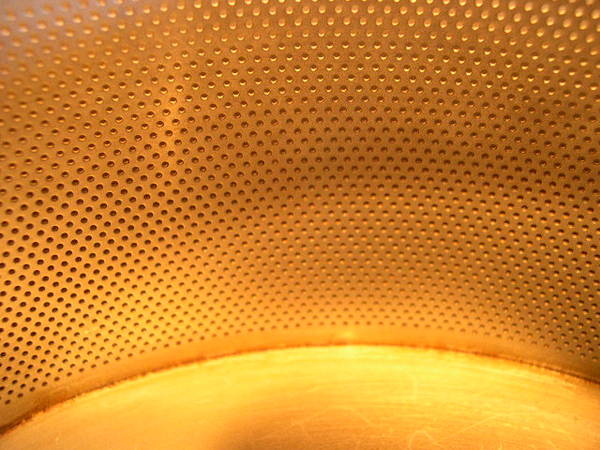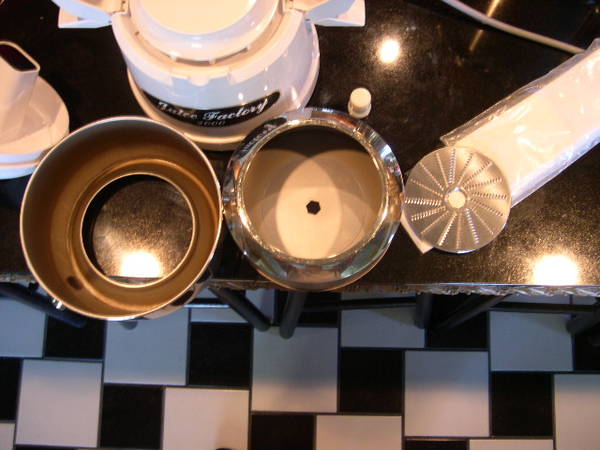OK, so I got to looking around the house for my juicer after reading a couple of articles about centrifuge separation of stuff like algae http://www.simplecentrifuge.com. So, my juicer lets the liquid go through a paper filter in the side wall of the outer centrifuge as opposed to over the top of this wall like the ones I read about, but... I got to thinking about break separation after the boil and other filtration that something like this might come in handy for. I know I know, we have read all the stuff saying it doesn't matter about wort turbidity and the final product. However, I am wanting to get into lagers and everything I read says the cleaner the wort prior to ferment the cleaner the beer after ferment. I really think this could work well with some minor modification to filter wort. Well... I am bored and my mind screams, "make something!" Figured I'd post my thoughts and some pictures for others to maybe get an idea for something useful.




Looks simple, just pour in some Star-San right before use and fire her up. It would take forever to filter through a coffee filter paper, but this would squeeze it through real nice. I'm thinking it would spin all my hops clean from my hopsack and catch a vast majority of the break leaving me an empty kettle and an even fuller fermenter.




Looks simple, just pour in some Star-San right before use and fire her up. It would take forever to filter through a coffee filter paper, but this would squeeze it through real nice. I'm thinking it would spin all my hops clean from my hopsack and catch a vast majority of the break leaving me an empty kettle and an even fuller fermenter.



